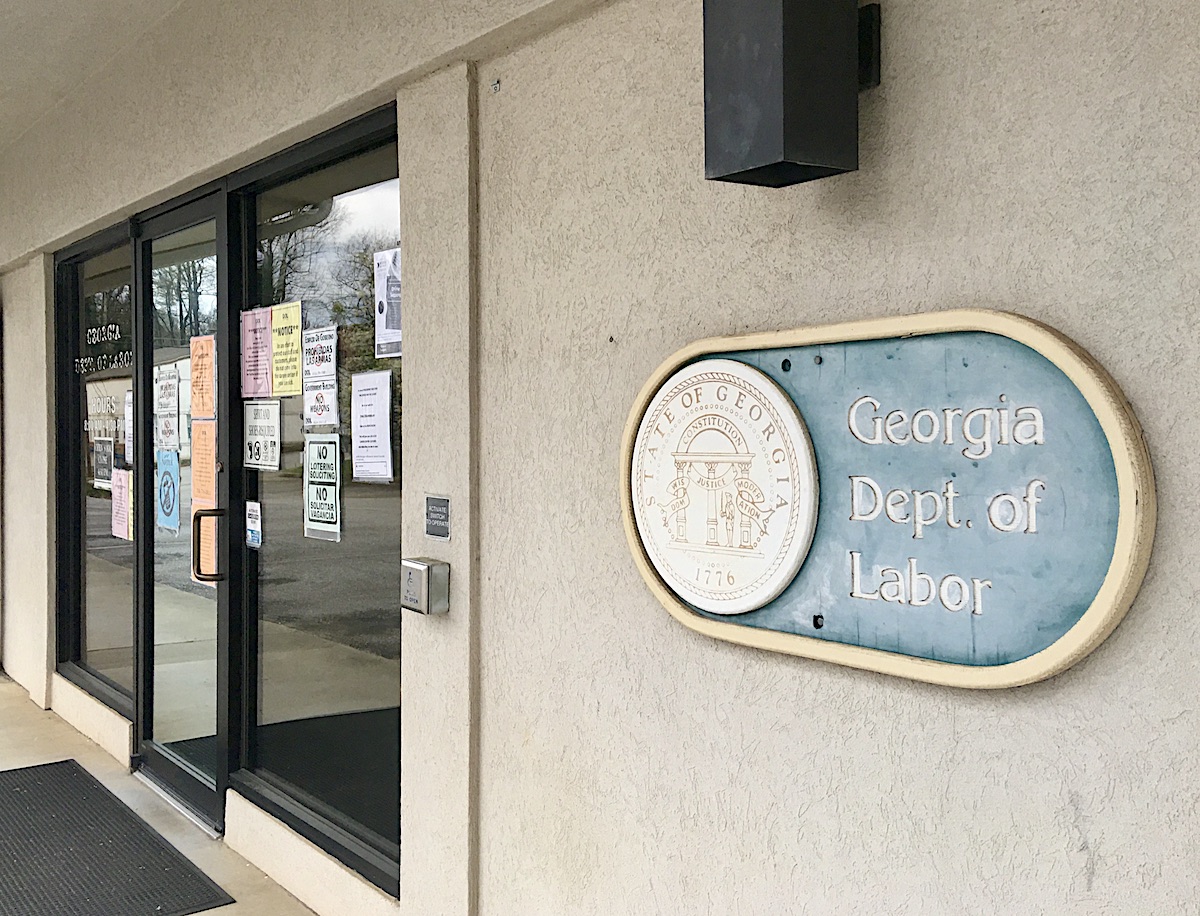
ATLANTA (GA Recorder) — The latest jobs report from the U.S. Department of Labor has some good news for Georgia.
The state’s unemployment rate dropped 0.1% to 4% in June, lower than the national rate of 5.9% and down 8.5% from the worst of the pandemic in April 2020.
“We have gained back 76%of the jobs lost in the pandemic and currently have over 190,000 job listings that need to be filled. We are working with employers across the state to fill those positions because if they continue to go unfilled, it will stall out new job creation,” said Labor Commissioner Mark Butler in a statement. “Several job sectors are already breaking all-time highs as we continue to see Georgia’s economy recover.”
The number of Georgia workers drawing unemployment fell by more than 73,000 to 105,681 for the week ending July 3, and the number of workers seeking their first unemployment claim dropped by more than 6,000, to 13,692 for the week ending July 10.
Both of those declines represented the biggest drops of any state.
“If you look at the new claim data and the decline over time, you’d say Georgia’s economy is growing; it’s been growing for a while,” said David Sjoquist, a professor of economics at the Andrew Young School of Policy Studies at Georgia State University. “The economy is looking good; there are jobs out there. So, if you want to get off of unemployment, there’s good opportunities. Whether you just want a job or because your benefits have gone down, it’s relatively easy to find a job.”
Many Georgians saw their benefits go down after June 26, when the state pulled out of extended federal unemployment pay, including an additional $300 weekly boost, and reinstated work search requirements for displaced workers filing for unemployment.
The $300 federal boost to benefits was set to expire in September.

Labor Commissioner Mark Butler and Gov. Brian Kemp argued an early exit would spur Georgians using the expanded pandemic benefits to avoid working instead of getting a job, and the labor department sees the decreased numbers as the result of the policy change, said spokeswoman Kersha Cartwright.
“We completely attribute that to stopping our participation in the federal programs,” she said.
Another positive sign is that 90% of the new claims come from workers quitting or being fired rather than being laid off, suggesting businesses are not being forced to cut workers or run out of money.
“We’re not seeing a huge number of layoffs because people are looking for employees,” Cartwright said. “Even prior to the pandemic, we saw a higher number of layoffs than we’re seeing now.”
From the week ending July 3 to the week ending July 10, according to the department, initial claims decreased in the five types of businesses with the largest increases in claims due to the pandemic: accommodation and food services, administrative and support services, manufacturing, health care and social assistance, and retail trade.
The elimination of the expanded benefits played a role in lowering unemployment, but it is not the only factor, Sjoquist said.
“There are other states that are experiencing decreases in continuing claims that have not changed their benefits yet, so something else is going on as well,” he said. “Part of it is just the general nature of the economy, part of it is the numbers, part of it in Georgia and some other states is the change in benefits that discourages people from staying unemployed. I cannot tell you how much, but you should not attribute the bulk of it to the change in benefits.”
Since March 2020, the state has processed more than 4.9 million regular initial unemployment claims, more than the ten years prior to the pandemic combined.
Nationwide, initial claims dropped by 26,000 to 360,000, the lowest level for initial claims since March 14, 2020, when it was 256,000.







